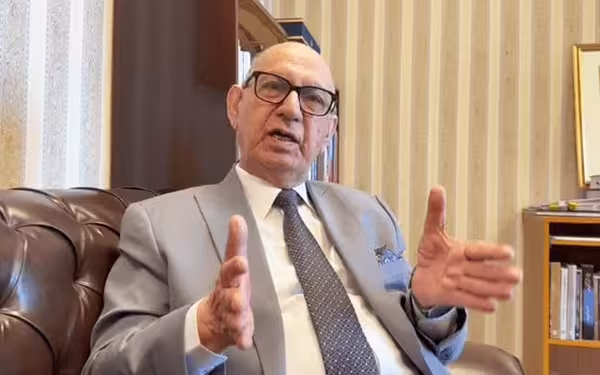Saturday, November 16, 2024 07:49 PM
Irfan Siddiqui Criticizes Judiciary's Stance on Martial Law in Pakistan
- Irfan Siddiqui questions judiciary's role in martial law.
- Concerns raised over recent court decisions and democracy.
- Judiciary's independence crucial for Pakistan's political stability.
 Image Credits: tribune.com.pk
Image Credits: tribune.com.pkIrfan Siddiqui criticizes the judiciary's failure to oppose martial law amid ongoing constitutional amendment debates in Pakistan.
In recent days, the political landscape of Pakistan has been shaken by a heated debate surrounding a constitutional amendment. This discussion has brought to light the role of the judiciary in the country, particularly regarding its stance on martial law. The remarks made by Pakistan Muslim League-Nawaz (PML-N) Senator Irfan Siddiqui have added fuel to the fire, as he openly criticized the judiciary for its perceived failure to oppose martial law.
During a press conference held in Islamabad on Wednesday, Siddiqui expressed his concerns about the legal foundations of recent court decisions. He specifically pointed to issues related to reserved seats and party defections, questioning whether these decisions align with the principles of justice and democracy. His comments reflect a growing sentiment among some political leaders who believe that the judiciary has not adequately defended the constitution against military influence.
The debate over martial law in Pakistan is not new. Historically, the country has experienced several military coups, leading to periods of martial law that have often curtailed democratic processes. Siddiqui's remarks suggest that there is a disconnect between the judiciary's actions and the expectations of the public and political leaders regarding the protection of democratic values.
As the discussion continues, it is essential for citizens to remain informed about the implications of these legal decisions. The judiciary plays a crucial role in upholding the constitution and ensuring that the rights of the people are protected. The ongoing debate serves as a reminder of the importance of a strong and independent judiciary in maintaining the balance of power within the government.
The comments made by Senator Irfan Siddiqui highlight a significant concern regarding the judiciary's role in Pakistan's political framework. As the nation grapples with these complex issues, it is vital for all stakeholders, including the judiciary, to reflect on their responsibilities in safeguarding democracy. The future of Pakistan's political stability may very well depend on the judiciary's commitment to uphold the constitution and protect the rights of its citizens.













